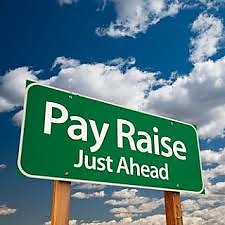Last week I was walking through Amsterdam and someone in the street came to me and asked me if he could ask some questions about the reputation of the ABN Amro bank. The bank is owned by the government since it had to be saved on the verge of bankruptcy in 2008. This bank has had some very bad publicity in the last weeks because of a salary raise for the board members. It wouldn’t surprise you the salary raise of €100.000,- caught the media’s attention. In no time it raised a lot of anger under the employees of ABN Amro and the rest of the Dutch society. Everybody was asking their self the question: “How can someone raise their salary with such a ridiculous amount after all the horrible mistakes they made, which we as society had to fix?”
The minister of finance had to answer to the second chamber why he had approved the salary raise of such a proportion. The minister told the second chamber that this salary raise is in accordance with the agreements they made when they nationalized the bank in 2008, on which the second chamber agreed. Next to that these salaries are conform the market and they need to be this high to keep the best people in the board to make sure the stock market launch will go smooth. The minister’s effort to explain the raise was in vain, and harm in the media had been done. The president of the supervisory board was fired and the stock exchange launch was postponed.
The question raised by the interviewer: “Is it fair that ABN Amro got so much bad publicity while doing something that was in accordance with the agreements and approved by the ministry of finance?” This made me think and I came to the conclusion that it isn’t fair ABN Amro got a lot of bad publicity. The board just awarded a salary raise which was in line with the market, and the supervisory board didn’t want to lose the employees to competitors who were offering a better salary.
This raises a lot of new questions when we look at it, but I think what is more important that we ask who is responsible in this regard. Is it the press who reported the news in such a way everyone had to dislike the salary raise, is it the second chamber who were not well enough informed about the agreements made in 2008, did ABN Amro have to go along in de high salary demands of the board.
In this problem of many hands probably every actor is a little bit to blame for the way things turned out, but I don’t think those are the ones who are really to blame. The interviewer’s second question “Who is to blame for this situation?” I had to answer with that I think it lies on a deeper level and it could be the whole crooked banking world that is created over the years. Who do you think is responsible?
